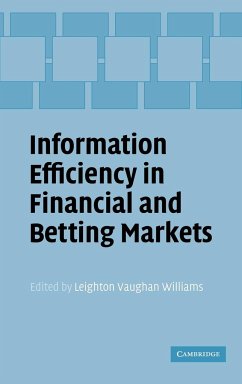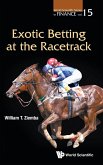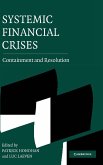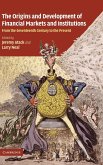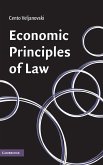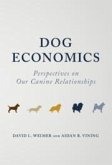Analyses information efficiency in both financial and betting markets.
The degree to which markets incorporate information is one of the most important questions facing economists today. This book provides a fascinating study of the existence and extent of information efficiency in financial markets, with a special focus on betting markets. Betting markets are selected for study because they incorporate features highly appropriate to a study of information efficiency, in particular the fact that each bet has a well-defined end point at which its value becomes certain. Using international examples, this book reviews and analyses the issue of information efficiency in both financial and betting markets. Part I is an extensive survey of the existing literature, while Part II presents a range of readings by leading academics. Insights gained from the book will interest students of financial economics, financial market analysts, mathematicians and statisticians, and all those with a special interest in finance or gambling.
Table of content:
List of figures; List of tables; List of contributors; Introduction; Part I: The Concept of Information Efficiency: 1. Information efficiency in financial markets Leighton Vaughan Williams; 2. Weak form information efficiency in betting markets Leighton Vaughan Williams; 3. Semi-strong and strong form information efficiency in betting markets Leighton Vaughan Williams; Part II. Selected Readings: 4. An assessment of quasi-arbitrage opportunities in two fixed-odds horse-race betting markets Michael A. Smith, David Paton and Leighton Vaughan Williams; 5. The presence of favourites and biases in bookmakers' odds William Collier and John Peirson; 6. Searching for semi-strong form inefficiency in the UK racetrack betting market Ming-Chien Sung, Johnnie E. V. Johnson and Alistair C. Bruce; 7. Models, markets, polls and pundits: a case study of information efficiency Leighton Vaughan Williams; 8. Longshot bias: insights from the betting market on men's professional tennis David Forrest and Ian McHale; 9. Biases and insider trading in exotic bets on thoroughbreds Les Coleman and Martin McGrath; 10. On the improbability of information efficient parimutuel betting markets in the presence of heterogeneous beliefs William Hurley and Lawrence McDonough; 11. Modelling gambling demand in a laboratory casino: discovering the importance of individual-specific effects W. David Walls and Patrick J. Harvey; 12. Market efficiency of the 50-30-20-10 horse-racing spread betting market Paul M. Twomey; 13. Insider trading and bias in a market for state-contingent claims Adi Schnytzer and Yuval Shilony; 14. Rationality and efficiency in lotto games Victor A. Matheson and Kent R. Grote; 15. Efficiency of the odds on English professional football matches David Forrest and Robert Simmons; 16. Modelling distance preference in flat racing via average velocity David Edelman; 17. Testing for market efficiency in gambling markets: some observations and new statistical tests based on a bootstrap method Ivan A. Paya, David A. Peel, David Law and John Peirson; 18. Information (in)efficiency in prediction markets Erik Snowberg, Justin Wolfers and Eric Zitzewitz; Index.
Hinweis: Dieser Artikel kann nur an eine deutsche Lieferadresse ausgeliefert werden.
The degree to which markets incorporate information is one of the most important questions facing economists today. This book provides a fascinating study of the existence and extent of information efficiency in financial markets, with a special focus on betting markets. Betting markets are selected for study because they incorporate features highly appropriate to a study of information efficiency, in particular the fact that each bet has a well-defined end point at which its value becomes certain. Using international examples, this book reviews and analyses the issue of information efficiency in both financial and betting markets. Part I is an extensive survey of the existing literature, while Part II presents a range of readings by leading academics. Insights gained from the book will interest students of financial economics, financial market analysts, mathematicians and statisticians, and all those with a special interest in finance or gambling.
Table of content:
List of figures; List of tables; List of contributors; Introduction; Part I: The Concept of Information Efficiency: 1. Information efficiency in financial markets Leighton Vaughan Williams; 2. Weak form information efficiency in betting markets Leighton Vaughan Williams; 3. Semi-strong and strong form information efficiency in betting markets Leighton Vaughan Williams; Part II. Selected Readings: 4. An assessment of quasi-arbitrage opportunities in two fixed-odds horse-race betting markets Michael A. Smith, David Paton and Leighton Vaughan Williams; 5. The presence of favourites and biases in bookmakers' odds William Collier and John Peirson; 6. Searching for semi-strong form inefficiency in the UK racetrack betting market Ming-Chien Sung, Johnnie E. V. Johnson and Alistair C. Bruce; 7. Models, markets, polls and pundits: a case study of information efficiency Leighton Vaughan Williams; 8. Longshot bias: insights from the betting market on men's professional tennis David Forrest and Ian McHale; 9. Biases and insider trading in exotic bets on thoroughbreds Les Coleman and Martin McGrath; 10. On the improbability of information efficient parimutuel betting markets in the presence of heterogeneous beliefs William Hurley and Lawrence McDonough; 11. Modelling gambling demand in a laboratory casino: discovering the importance of individual-specific effects W. David Walls and Patrick J. Harvey; 12. Market efficiency of the 50-30-20-10 horse-racing spread betting market Paul M. Twomey; 13. Insider trading and bias in a market for state-contingent claims Adi Schnytzer and Yuval Shilony; 14. Rationality and efficiency in lotto games Victor A. Matheson and Kent R. Grote; 15. Efficiency of the odds on English professional football matches David Forrest and Robert Simmons; 16. Modelling distance preference in flat racing via average velocity David Edelman; 17. Testing for market efficiency in gambling markets: some observations and new statistical tests based on a bootstrap method Ivan A. Paya, David A. Peel, David Law and John Peirson; 18. Information (in)efficiency in prediction markets Erik Snowberg, Justin Wolfers and Eric Zitzewitz; Index.
Hinweis: Dieser Artikel kann nur an eine deutsche Lieferadresse ausgeliefert werden.

